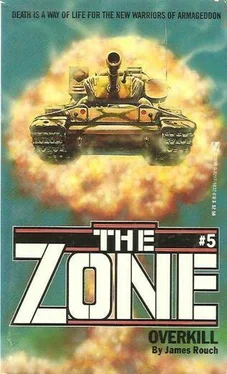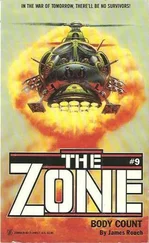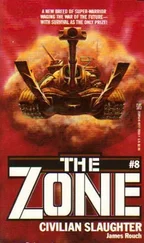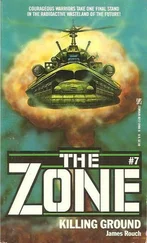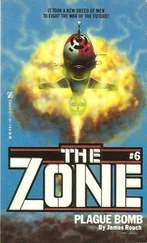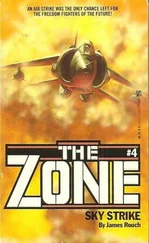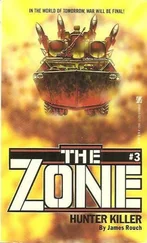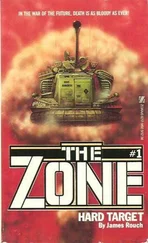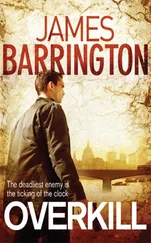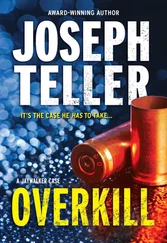Dazed, Boris moved away, still clutching the pack. He thought he had conquered his fear, had found its limits and learnt to cope with it, but now all the old feelings flooded back and he had to sit because his legs suddenly had no strength. Hardly knowing what he was doing he slowly and methodically wiped his hands on the rough canvas of the pack, having to grind them hard to scrape off the adhering body fats that had run from the split and bloated limbs he’d handled.
A tipper truck stopped close by, and the gang of men that climbed from it began to toss on board any corpses that the doctors and identification clerks had finished with. Using their bare hands, their shirt fronts streaked with every kind of filth, they handled the bodies as they might have handled cartons of soap.
Every one of the men had the same haggard expression and in the deep lines etched in each could be read a catalogue of horror without end. This was one of the burial squads. They were fed better than most as they had more work to do, received better medical treatment than most as their work was important and put them at risk, and they had a death rate second only to the infantry units holding the city’s perimeter. Their death came in many forms, but one factor was common to all, it was at their own hands.
Until now Boris had thought that nothing could have induced him to do that job. Suddenly it seemed a desirable alternative to the task that lay ahead.
THE OTHER SIEGES
USS NEW JERSEY
Aircraft flying from the aircraft carrier Forrestal, flagship of the American Pacific fleet, are now able to maintain round the clock air-cover over the battleship New Jersey, two hundred miles off Manila. They will sustain the effort until tugs arrive in eighteen hours to take the ship in tow. Converted to carry and launch salvos of cruise missiles, and re-commissioned thirty-eight years after its completion, the 60,000 ton veteran of World War Two has comprehensively vindicated President Reagan’s decision and confounded those who called the ship a dinosaur and predicted she would go to the bottom in her first engagement.
The New Jersey has withstood three days of bombardment by Russian missile boats firing one-ton ship-killer missiles. During that time the battleship’s defences have defeated seventy missiles before they could get through, and sunk eighteen enemy vessels confirmed and a further unknown number of transports and landing craft.
Of the nineteen hits sustained on the New Jersey’s hull and superstructure only ten achieved penetration, two of them failing to detonate. Less than ten per cent of the ship’s complement have been rendered casualties. Despite the damage to the propellers and rudder that immobilised the ship early in the engagement, more than sixty missiles were launched at the Russian task force, inflicting losses that forced it to turn about and run for Vladivostok. The Soviet press is already clamouring for the punishment of the ship’s captain, Edward J. Morgan, accusing him of ‘the murderous and piratical act of attacking unarmed merchant vessels.’ The State Department had no comment to make. The President is reported to have smiled, and said, ‘Nuts.’
The waters of the lake were still as glass, and reflected the pyrotechnics in the heavens as perfectly. And despite the boom of distant detonations and the closer clatter of a desultory machine gun duel at the northern end of the Aussenalster, it seemed that every slight sound made by their hessian-muffled oars was as loud as the roar of a pounding waterfall.
Flak jackets had been hung along the side of the ex-lifeboat, as much to do something to break up its angular outline as to provide any degree of protection.
It had taken them thirty minutes to get safely clear of the west bank, painstakingly threading their way round and through the vast amount of wreckage the day’s breeze had piled against the shore. Further out it was easier, but more than once they had to stop paddling and tense against a collision they could not avoid with the partially submerged wreck of a yacht that had drifted away from the masses of destroyed craft occupying the basins of the many marinas.
Fifty yards from the shore, partially hidden from it by the upturned hull of a bullet-riddled cruiser, they hauled the rubber dinghy alongside. Boris was given the torch, helped over the side, and pushed off towards the shore. They saw his terrified face just once as the awkward craft spun around, then he got into the rhythm of it and began to use his hands to propel himself to the bank.
‘Poor guy. He’s shit scared.’ Dooley watched the Russian land and scramble into the cover of a stand of leafless trees before he lost sight of him in the darkness.
In trying to shift to a more comfortable position on the hard wooden seats, Ripper succeeded only in slipping off and sitting in the several inches of dirty water swilling about the bottom of the boat. ‘Aw shit, I’ve wet me-self.’
‘You and Boris both.’ Dooley let his fellow American struggle back up on his own.
‘That’s a point.’ Unsuccessfully Ripper put his hands to the seat of his pants and attempted to wring them dry. ‘Say, Sarge. If our pet Ruskie produces the goods then that’ll prove he’s on our side, you’ll have to trust him then.’
‘Like hell I will. It might just mean his KGB bosses are letting him throw us a crumb or two so he can hang around and wait for something big to come along.’
‘A 240mm mortar with its crew and support vehicles is hardly a crumb.’ Clarence could see flaws in the sergeant’s argument.
‘Keep the noise down, let’s have it quiet from now on.’ However logical the sniper’s reasoning, Hyde wasn’t about to drop an ingrained prejudice so easily, and by virtue of his rank he was able to cut short the discussion, and halt the offences upon it.
Occasionally they would have to dip their oars and make a few strokes to compensate for an almost imperceptible drift, but that apart, all they could do was wait. Several times they heard vehicles on the Russian side. They seemed all to be wheeled, as there was no grinding of squealing of tracks, but the racket made by their knocking engines, rattling panels and crunching gears made even that vague identification suspect.
The interior of the lifeboat was alternately bright as day and pitch black, as star shells ignited and expired overhead. One of them fell, still burning, into the lake close by, and the surface exploded into bubbling steam as it fought to quench the blazing ball of magnesium. When finally the waters won, a large area of the lake was wreathed in a floating white mist that carried with it the pungent smell of the extinguished chemical fire.
They had to wait almost two hours for the signal, and when it came Burke, who was on lookout, had to wait for it to be repeated twice more before he could convince himself it wasn’t his strained eyes playing tricks.
Using the minimum number and quietest possible strokes they pulled to the shore, and had to wade the last few yards through a carpet of floating debris, when the boat grounded.
‘Just for once I’m sure glad I didn’t listen to my Mam.’ Dripping from head to foot, Ripper was the last to reach the cover of the trees. ‘She always told me I should join the navy. Shit, after tonight nothing is ever going to get me into a boat again. My arse is numb, my arms ache, and to cap it all the damned ship moved when I were climbing out.’
‘Pity the water wasn’t a bit cleaner, you’ve been needing a good wash for ages.’
Ripper took no exception to Burke’s remark. ‘I know that, but like I told you, it’s done on purpose. If it comes to close fighting, and you’re up wind of some Ruskie, smelling like a perfume counter, then you might as well turn a spotlight on yourself. Those Ghurkhas don’t wash when they’re in action.’
Читать дальше
